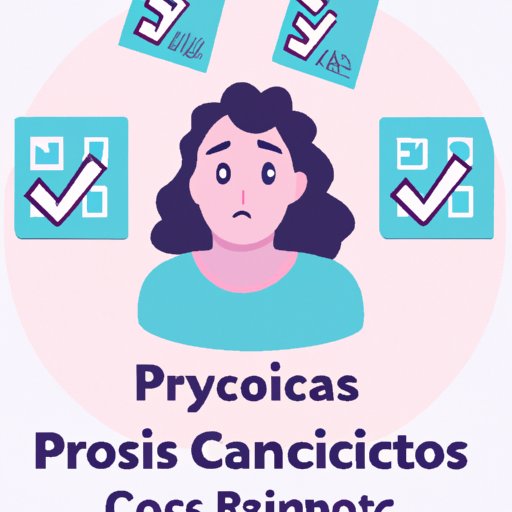
Introduction
Polycystic Ovary Syndrome (PCOS) is a common reproductive disorder affecting women worldwide, and it requires a proper diagnosis for effective management. However, many women struggle for years to receive an accurate diagnosis, which causes frustration and anguish. This article explains how PCOS affects the body and explores the different approaches to diagnosis, including traditional testing and alternative methods. We’ll also discuss some of the mental health challenges associated with PCOS and offer tips for seeking appropriate care.
7 Common Symptoms of PCOS: How to Recognize the Condition and Seek Diagnosis
PCOS has several symptoms that manifest differently in different individuals. Some of the most commonly reported symptoms include irregular periods, acne, weight gain, excessive hair growth, and fatigue. Identifying these symptoms, recording them, and discussing them with your healthcare provider is crucial for receiving an early diagnosis. Women should schedule an appointment with a healthcare professional as soon as they experience any unusual symptoms that may be related to PCOS. During the appointment, healthcare providers may use Rotterdam criteria, which involves a combination of physical examination, symptomatic history, and diagnostic testing to diagnose patients.
The Ins and Outs of PCOS Testing: What to Expect During Diagnosis
The diagnostic tests for PCOS may be uncomfortable, especially for first-time patients, but it is important not to let fear be a barrier to receiving medical care. Blood tests, ultrasounds, and other procedures may be required during the diagnostic process. Patients may experience anxiety and embarrassment during this process, so it is critical to seek support from friends, family, or a mental health professional. Patients can always ask questions during the testing process if they need clarification or support.
Alternative Approaches to PCOS Diagnosis: What to Consider When Traditional Testing Isn’t an Option
For some women, traditional testing may not be an option, and so medical practitioners may rely on symptom-based diagnosis, where several symptoms are identified and managed internally. Working closely with a healthcare provider who is familiar with PCOS may be helpful in such situations. Some populations, like those who are transgender, may face challenges in the diagnostic process, so PCOS management should be individualized to their unique needs. Any concerns can be discussed with providers, and additional support or advice may be sought when appropriate.
Navigating PCOS Diagnosis as a Believer: How to Balance Faith and Medical Science
Some women may struggle to reconcile their faith with medical care and conventional medical treatment for PCOS. Patients can find comfort in the fact that many religious groups and faith communities support medical care for PCOS, and that faith and medical care do not have to be mutually exclusive. Finding medical practitioners who respect their beliefs and can support them with proper care is essential. It’s important to remember that personal faith is an individual choice, and consulting with a religious or spiritual leader can help provide clarity on how to balance it with medical care.
PCOS and the Mental Health Connection: Why Proper Diagnosis is Essential for Whole-Body Wellness
PCOS can have a significant impact on a patient’s mental health. It is essential to diagnose and manage the condition correctly to ensure psychological wellness during the treatment process. Some patients may struggle with anxiety, depression, or other mental health conditions as a result of PCOS, and it is crucial for providers to address these concerns. Patients may seek mental health support from qualified professionals or support groups while managing PCOS symptoms. They can consult practitioners or seek support in managing mental health issues that arise as a result of the PCOS diagnosis.
Conclusion
PCOS diagnosis and management can be challenging, but patients can take charge of their health by staying informed and seeking appropriate care. By recognizing the symptoms, identifying a practitioner, and receiving a correct diagnosis, women can take the first steps towards improving their quality of life. Identifying the best approach to diagnosis for individual situations can help women receive the best care possible and manage any mental health concerns that may arise during the treatment process.





